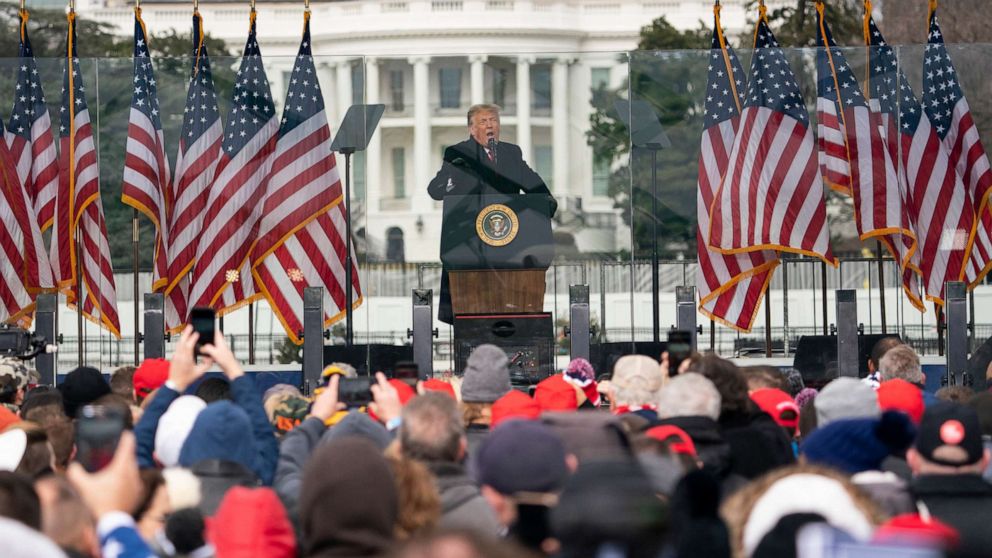Trump impeachment affirms power of words and consequences: ANALYSIS
Perhaps the most remarkable aspect of the speech that led to President Donald Trump's historic second impeachment is how unremarkable it might have been.
To those who have grown used to and perhaps weary from watching his speeches, it was rather typical of Trump. Last Wednesday's collection of meandering falsehoods, generalized complaints, vague political threats and outright lies may have been forgotten if not for what happened next.
That put what did happen next into the large Trump-era category of being utterly shocking but perhaps not all that surprising. That in turn made Wednesday's bipartisan vote to impeach Trump about something larger than this president and this moment.
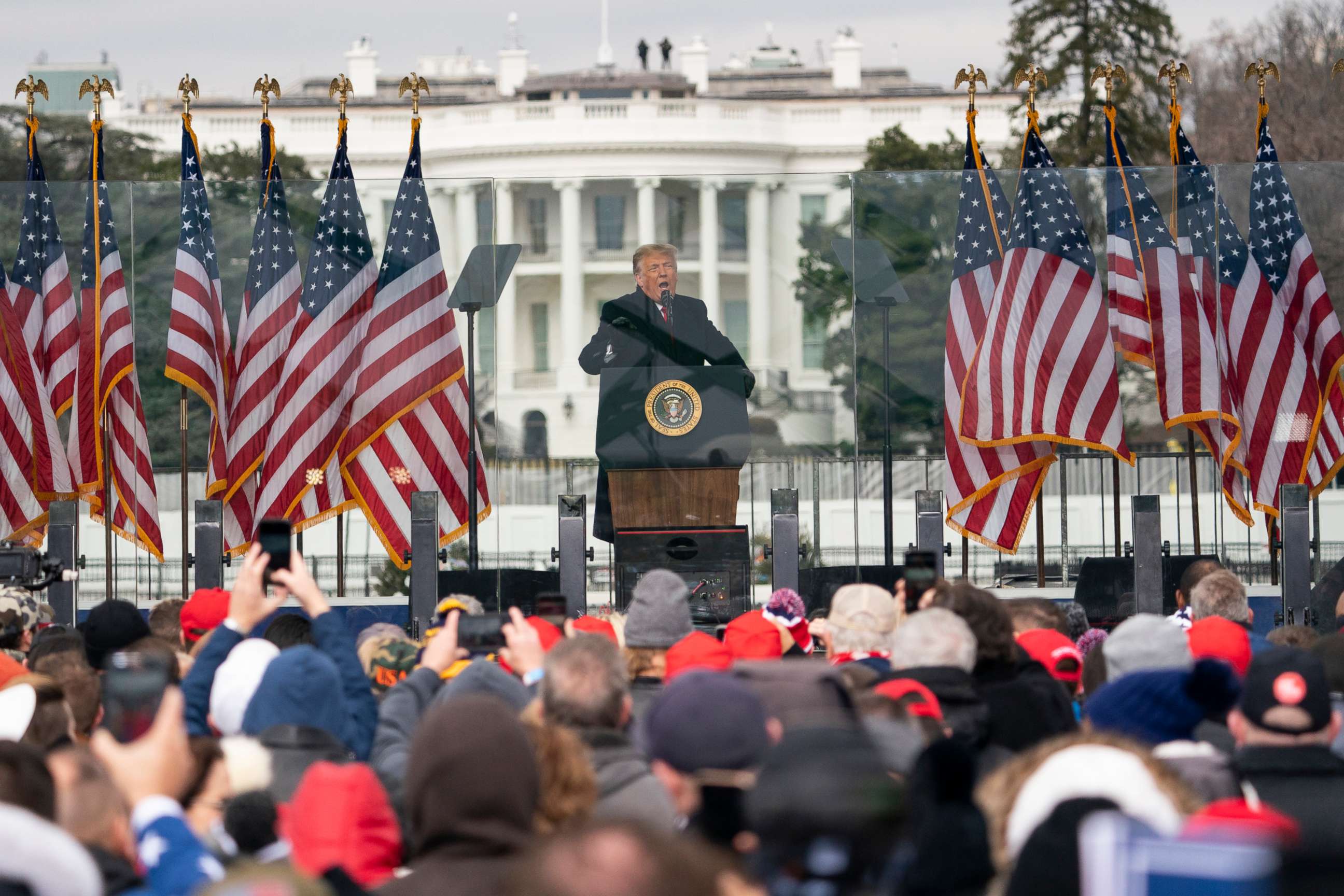
The mob violence and desecration at the Capitol revealed a human cost to political lies and overheated rhetoric. Then, by voting to impeach the president Wednesday with just one week left in his term, Congress imposed a cost of its own on a president whose political success has relied on mistruths and misinformation.
"Words matter. Truth matters. Accountability matters," House Speaker Nancy Pelosi said on the House floor. "We here in this House have a sacred obligation to stand for truth."
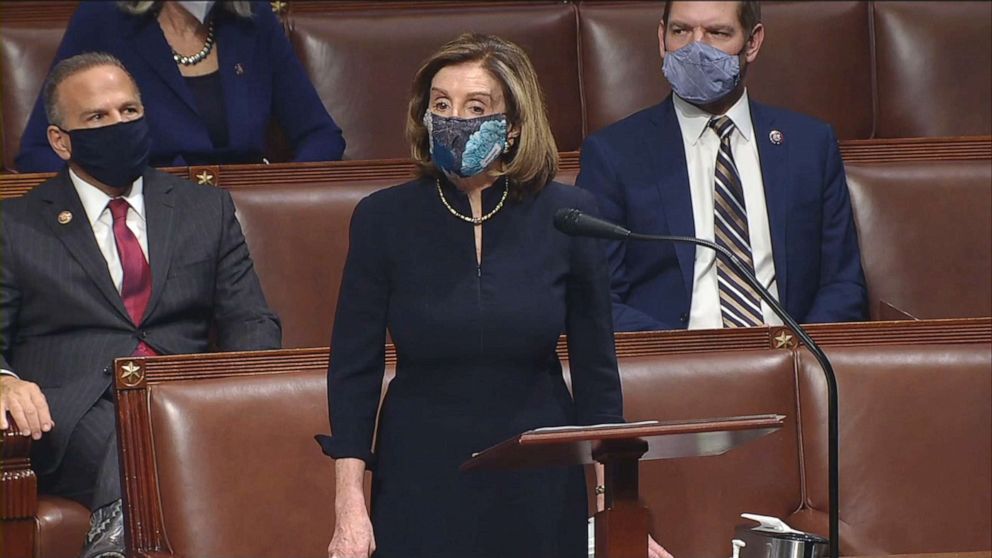
The familiar pattern of the Republican Party falling into line behind the president's deflections and redefinitions didn't entirely hold. Even some prominent defenders of the president who opposed impeachment still used the opportunity to affirm Trump's responsibility for last week's events.
House Republican leader Kevin McCarthy -- among those who challenged the election results last week and voted against impeachment Wednesday -- called on Trump to accept blame for what happened and sought to dispel some talking points that have bubbled up in far-right media outlets.
"Some say the riots were caused by antifa. There is absolutely no evidence of that. And conservatives should be the first to say so," said McCarthy, R-Calif.
Republicans who broke with their party's president to support impeachment spoke at length about what they experienced themselves, as opposed to any reality Trump sought to define after the fact. The statement by Rep. Liz Cheney, the No. 3 House Republican, was particularly influential in shaping the debate.
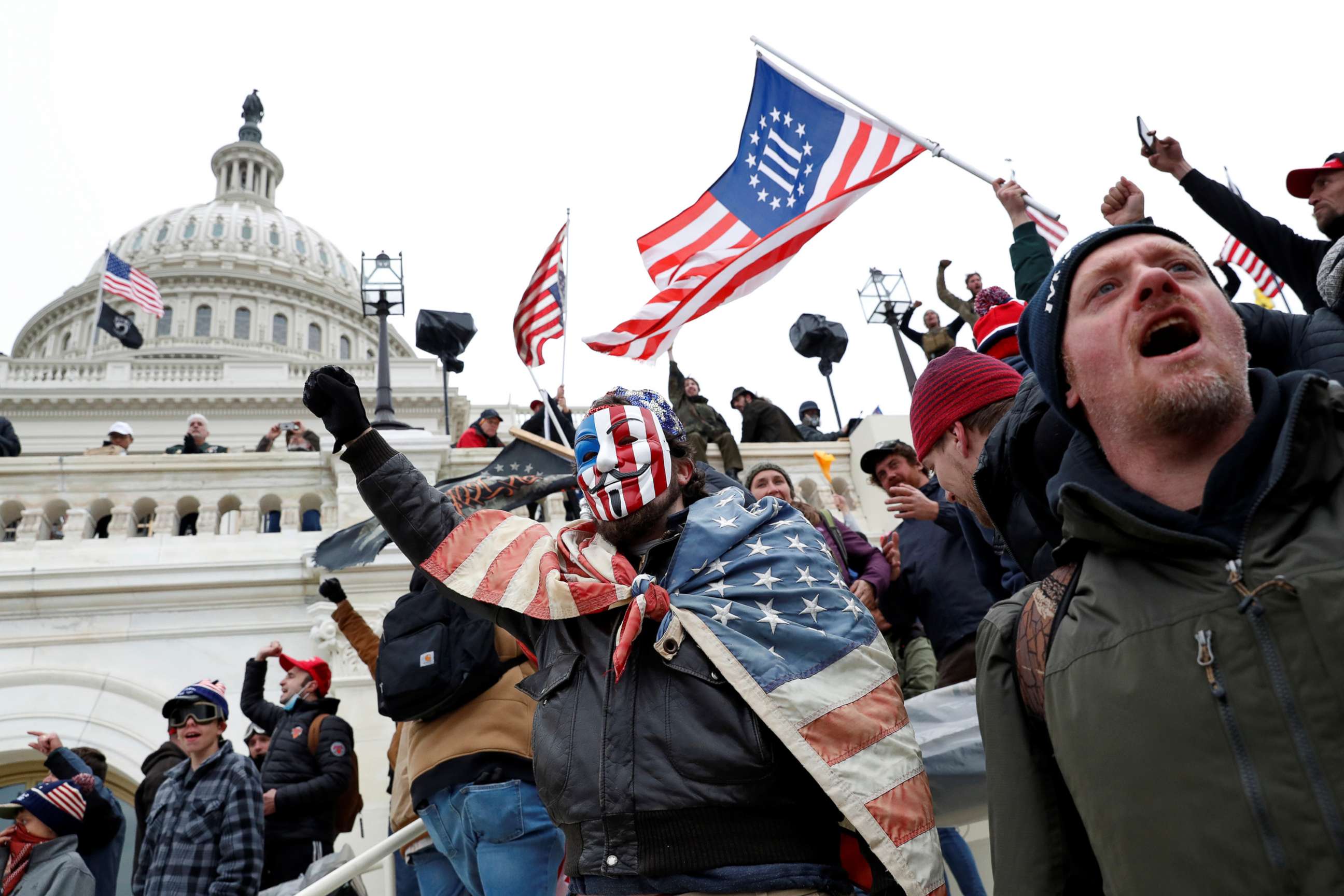
"The President of the United States summoned this mob, assembled the mob, and lit the flame of this attack. Everything that followed was his doing. None of this would have happened without the President," said Cheney, R-Wyo.
Rep. Adam Kinzinger, R-Ill., described his vote to impeach as part of critical efforts to confront misinformation -- including false claims about the election that were weaponized when the Capitol stood under siege.
"We've kind of woken up to it, and I fear that we might have woken up a little too late," Kinzinger said on ABC's "Powerhouse Politics" podcast. "But I think (for combatting) misinformation, truth-telling is going to be important to disinfect that. People waking up to misinformation is going to be important."
Not everyone was waking up to the same alarm. Defenders of the president including Rep. Jim Jordan, R-Ohio, and Rep. Ken Buck, R-Colo., sought to justify the anger felt by protesters as stemming, in part, from widely debunked conspiracies that date back to the beginning of the Trump presidency.
Rep. Matt Gaetz, R-Fla., took a phrase that Cheney and others used to turn against the political left, citing last year's protests over racial and social justice: "They lit actual flames -- actual fires."
Trump himself was stripped of his most immediate means of spreading falsehoods after the attacks at the Capitol, when his Twitter account was shut down for good. As debate continued on the House floor, he used the traditional means of a White House press release to make an anodyne statement calling for "NO violence, NO lawbreaking and NO vandalism of any kind."
"That is not what I stand for, and it is not what America stands for. I call on ALL Americans to help ease tensions and calm tempers," Trump said in that statement.
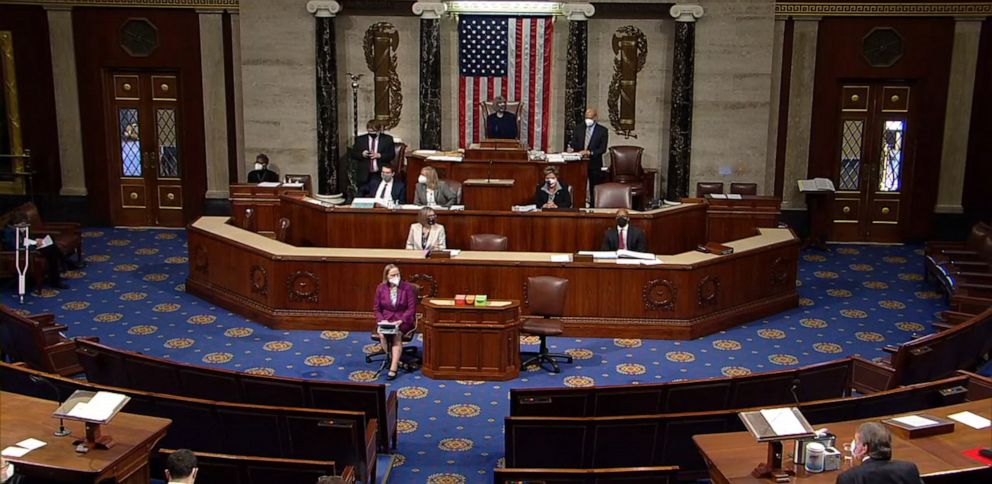
For all the talk of the need for unity Wednesday, it remained a fractured Congress that convened during extraordinary and deeply divided times. Republican loyalty to Trump remains strong, and fears of him and his base remain real.
Only adding to the tensions, some members of Congress are blaming colleagues for spreading COVID-19 during last week's lockdown. Some are expressing fear that fellow House members will bring weapons into official proceedings and others objected to having to go through metal detectors on their way onto the House floor this week.
In exactly one week, it will be President-elect Joe Biden's charge to bring a nation back to health -- physically, psychologically and emotionally. Few would expect the impeachment trial of his predecessor, now certain to consume Senate time in his first days in office, to help the national mood or break any fevers.
Still, for one day and with one monumental vote, Congress relied on its constitutional charge to assert some things that have fallen into question during the past four years.
Words do matter. Actions do have consequences. The political system so battered by the past several years, and then literally attacked last week, held up.
